The second in a series, Waterman David Miller
“From the time I was five, I was with my dad crabbing. There was no babysitter when I wasn’t in school, my two sisters were older and my mom worked. They put me on the boat, I went back to sleep. When I woke up the second time, I culled crabs or oysters. My father told the story of me coming out of the pilothouse with his big, thick culling gloves on and last weekend I had my five-year-old grandson with me and he had my giant culling gloves on, making him look even smaller. History does repeat itself.”
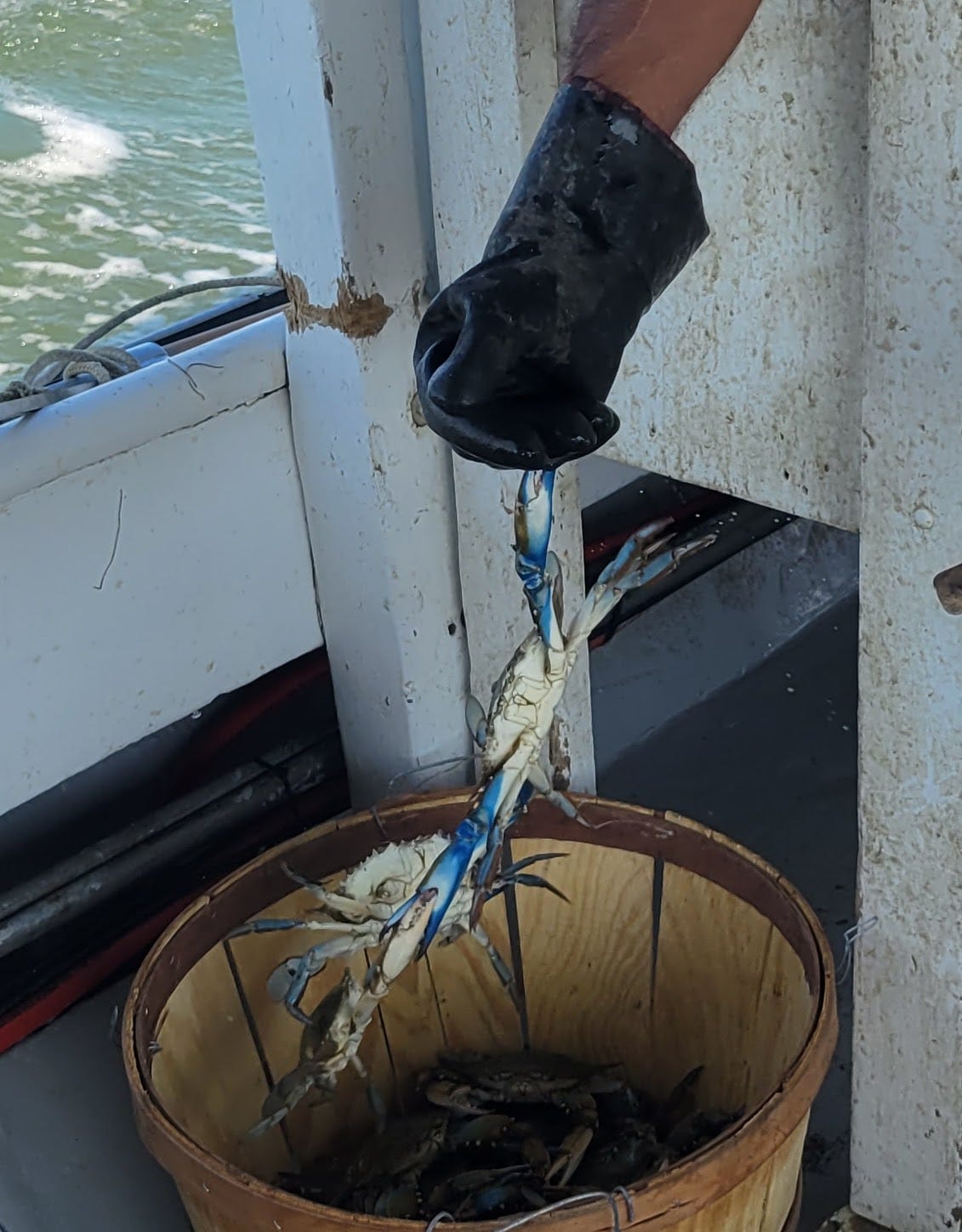
Our boat was named ONE WAY meaning ‘One Way to Heaven;’ he and his father are both in Heaven, just different versions thereof. The world lost David Leroy ‘Bunky’ Miller in the summer of 2023 after multiple battles with Mother Nature. His only son’s smiling face, bright blue eyes and tall frame are across from me on STEADFAST as I type his story and it’s clearly divine that he’s back working on the water.
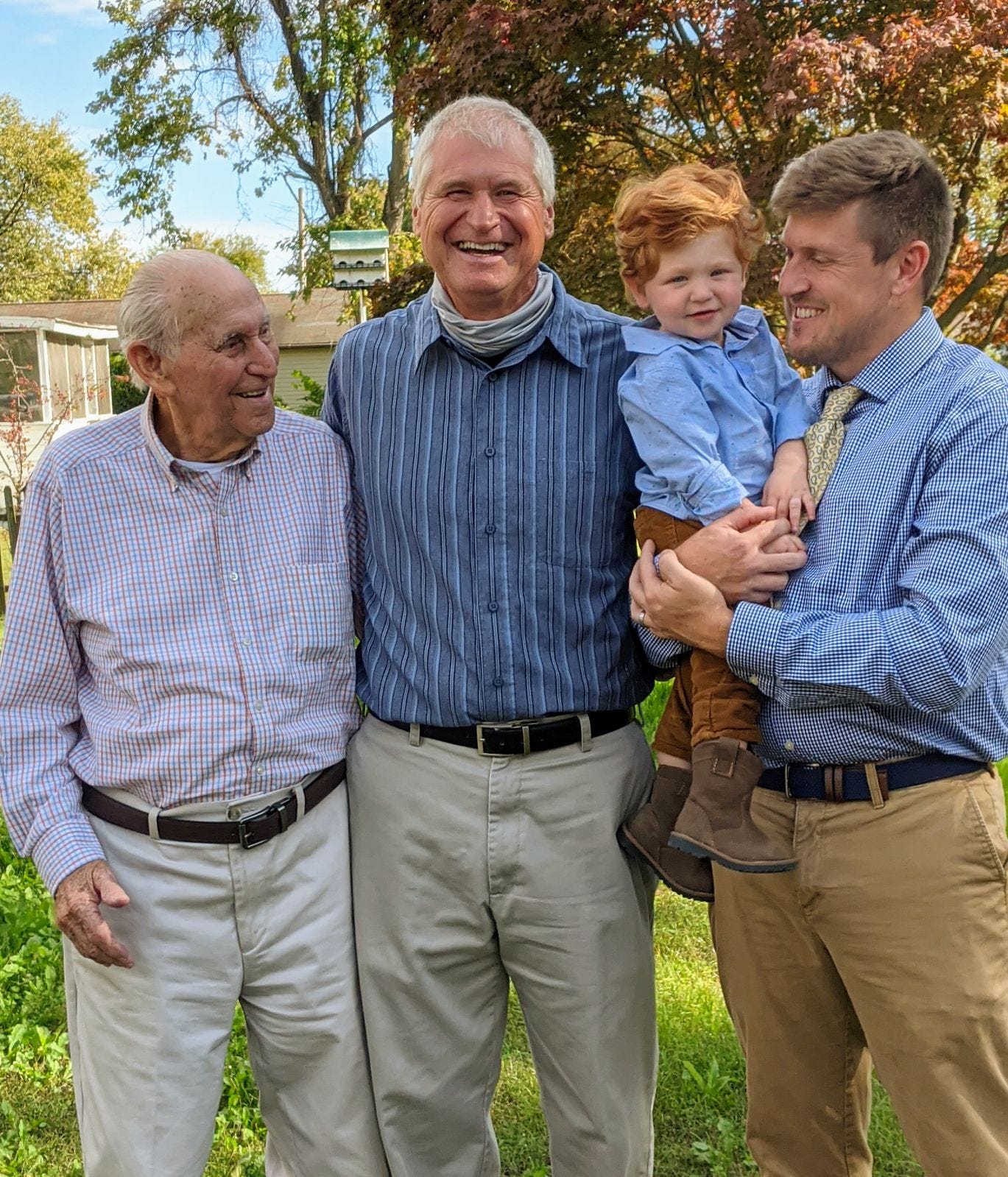
“My Dad could do a little bit of everything because he had to. He was born in 1930, went to school until he was fourteen, and then worked for Tilghman Packing Company because all the men went to war and someone had to keep the businesses going.” Lots of Chesapeake Bay oysters went to the government at that time and it was important to keep it going; all the women already worked there.
“When the surviving men returned, my dad would crab during the day, get on a fishing boat, go up north, fish all night and come back. They only slept while they were traveling, and that fishing was hard work. One night up by Bloody Point Light he saw what he thought were two logs in the net close to shore so he headed in after them; they moved and turned out to be two Bull sharks. They brought one back to the island and while it was hanging down by the bridge they took the teeth out and gave one to each of us kids. That’s one of my favorite stories,” he tells me. “Real Tilghman. It was hard to make a living.”
“When I was thirteen a 30-foot cabin cruiser caught on fire at Reeser’s Marina and sank. There was nothing but the bottom left and they were gonna burn up the rest of it but my Dad brought it home and built me a boat so I named her THE HOT STUFF. At first he helped me lay out the trot line and I would crab it, until I got comfortable on my resurrected deadrise. We grew up young and worked hard. One week I beat him, I remember it was $750, a lot of money back then, and I drove him crazy with that accomplishment; comparing my skills to his. I continued, crab in summer and oysters in winter.” Everyone used hand tongs back then; not the hydraulic lifts most use today, and there’s no harder work than that on a rolling vessel. Or anything colder than the nasty, damp winters on the Chesapeake Bay.
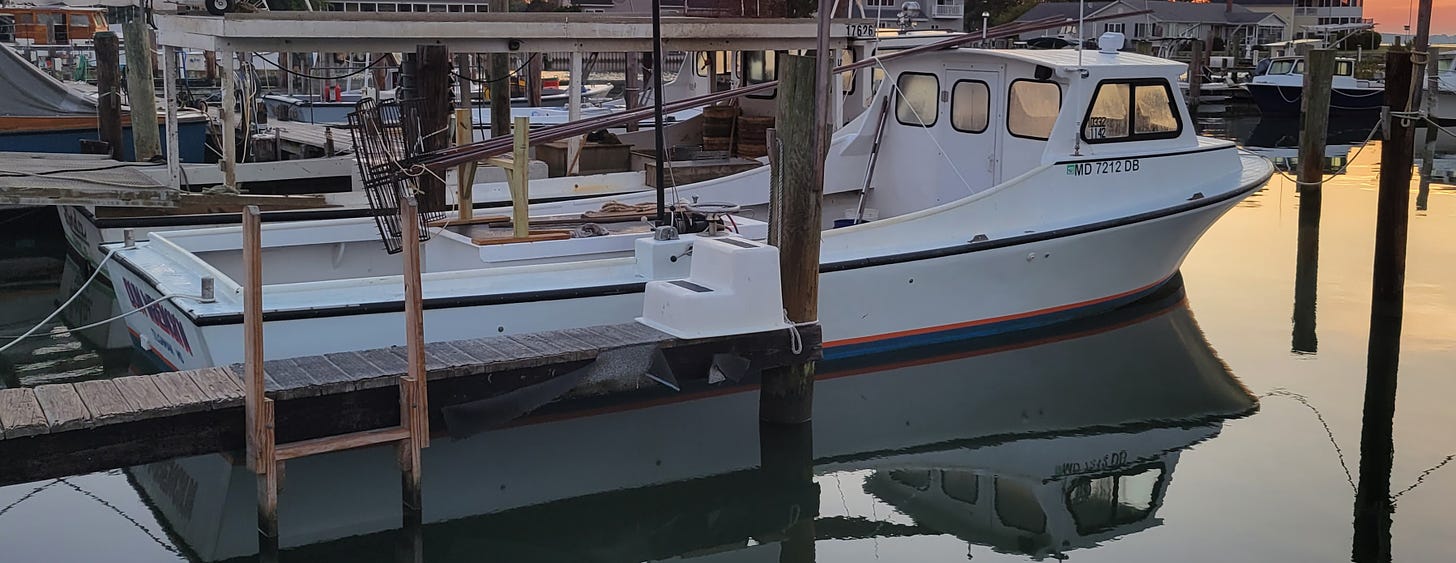
While David has spent a lot of his life SPARRING WITH MOTHER NATURE, but for reasons beyond his control, he wasn’t a lifetime Waterman and his children aren’t either; his daughter Kristin is a Director at a Physical & Occupational Therapy Center and his son David Jordan is a teacher. “I don’t blame them,” he tells me squarely, “But I don’t think I was ever meant to be anything but a Waterman.”
“I graduated high school in ‘81 and the following February everything changed; the oysters were dying. I clearly remember my father telling me, “Boy, you better find something else to do.” I saw an ad for a Diesel Mechanics school and signed up for a six month training course that was OK but not everything I needed to know. Fortunately I got a position with two mentors in their 70’s, one a Detriot Diesel Mechanic and one from the Air Force. Still Watering on weekends, I drove an hour and ten minutes each way making $4.10 an hour for three years. I learned enough mechanic skill to get a job closer to home. In the meantime I married Jen and we were able to live with my folks for about three and a half years, which worked good for everybody.”
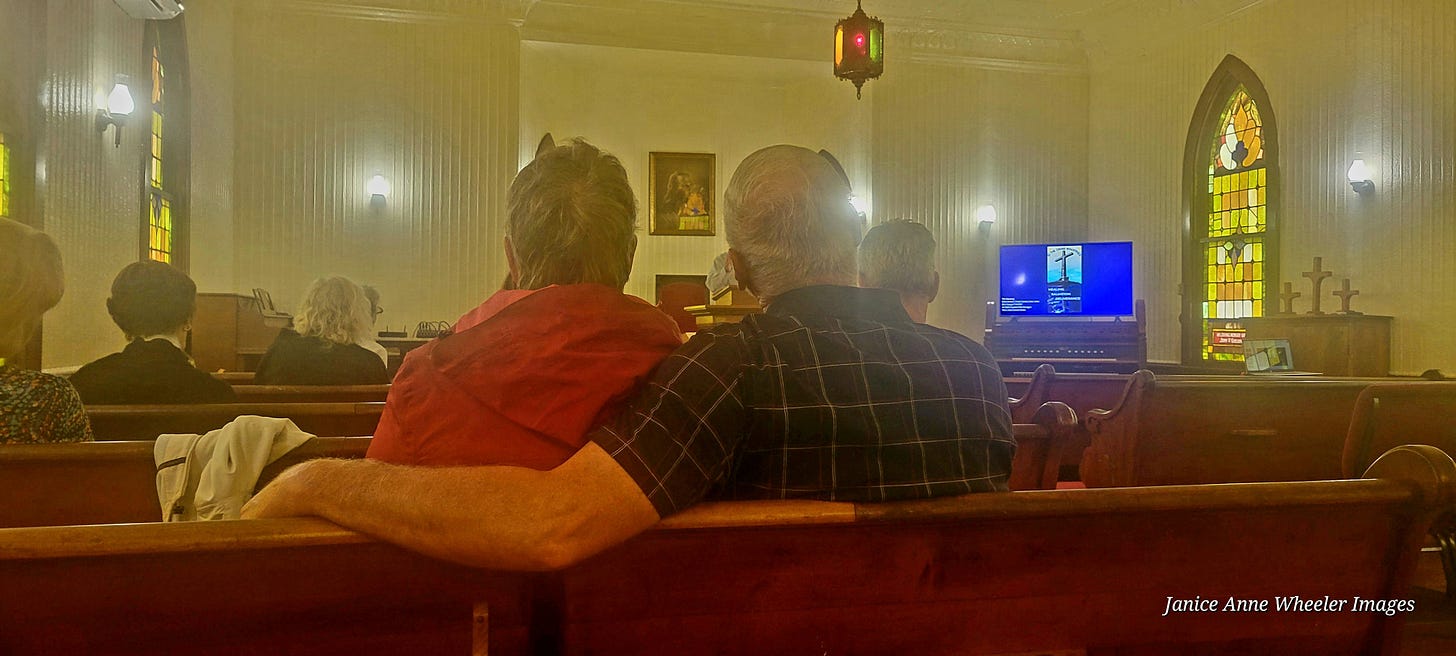
Sometimes we do what we have to do. “I became a foreman, then a service manager. I made good money at the right time…I sent my children to college and I don’t know if I could have done that on the water. The hardest part for me was (when I worked) at JG Parks and I would have to cross the bridge to Cambridge every day and see them all out on their boats.” he paused, reminiscing. “My heart never left the boat. And, being the boss is hard, very hard, making decisions about other people’s lives. It’s hard. Once (his son) Jordan finished college I knew I needed to do something different. My dad was rebuilding the workboat LEGACY at that time. (Read QUITE A LEGACY for that background.)
“So it was a good time to get out. I left that job and came home, tinkered locally to help friends and make a living. My father got colon cancer and it was perfect to be able to take care of him through lots of surgeries and just spend time like we did at the beginning of our lives together.” One friend describes David as “Just so kind.” and I certainly agree. He described himself as ‘ordinary’ during our conversation but I assure you he is not.
“Three years ago I just got back on the water and it felt so good. It’s hard to get the Waterman blood out of your system. You never get it out of your system.”
The boat that got him back on the water was built by Johnny Kinnamon …(another of those Tilghman legends you’ll hear more about). She went to Georgia and was a wreck when she came back but he and his father resurrected her, too, and DUN WRENCH’N is perfectly named even though he’s not exactly done, because his skills are so in demand. He spent time in the intimidating engine room here on STEADFAST, too, an irreplaceable, unexpected resource at the end of a peninsula. Gems do appear in the most remarkable places.
David is one of the most genuine, humble individuals I have ever met. He does what he says he will do and works hard, taking care of both his biological family and the raft of brotherhood that is the Watermen of this region. The younger generation respectfully calls him Mr. David.
“My number is a good one to have,” he states it simply. David will do his absolute best to help you. Better yet, he makes these Watermen self-sufficient, which goes far farther than someone simply lending a hand. He teaches, he demonstrates, and then follows up to make sure that the desired results are achieved. He’s happy sharing that knowledge, and the happiness is easy to see. “The more I can show them the better off they’ll be. I try to help whenever I can.” A Waterman without an operating engine is not feeding his family.
Last winter he opted for the Shingles vaccine. Unbeknownst to him (or to anyone I know) there is a fourteen percent chance of hearing loss in the ear on the side where the shot is administered. A musician and singer from the age of somewhere around three, it was a surprising and devastating blow that has improved very little in spite of painful injections and lots of prayer. A musical family, his father was part of The New Creations, who practiced in a garage they called Hootenany Hollow. Much more importantly, he tells me, “It was good because I was able to spend so much time with my dad.”
This devout man took all of this in stride, just like the continuous care of his much-loved Alzheimer’s-effected mother and the ups and downs of everyday life. One of the songs in a play he participated in at Easton’s Avalon Theater was titled “Don’t Be a Waterman” and the lyrics go something like this…
“Don’t be a Waterman my son.
The Bay ain’t what it used to be….
Don’t be a Waterman.” …..
David promised to dig that recording out for me and I sincerely hope that he can find it. He was laughing when he sang that song to me today, because being a Waterman is in his blood. And he’s no actor. “How was your day?” I asked him last week as I always do, and he smiled, as he always does. “It’s a beautiful day. There’s no crab, but it’s still a beautiful day.”
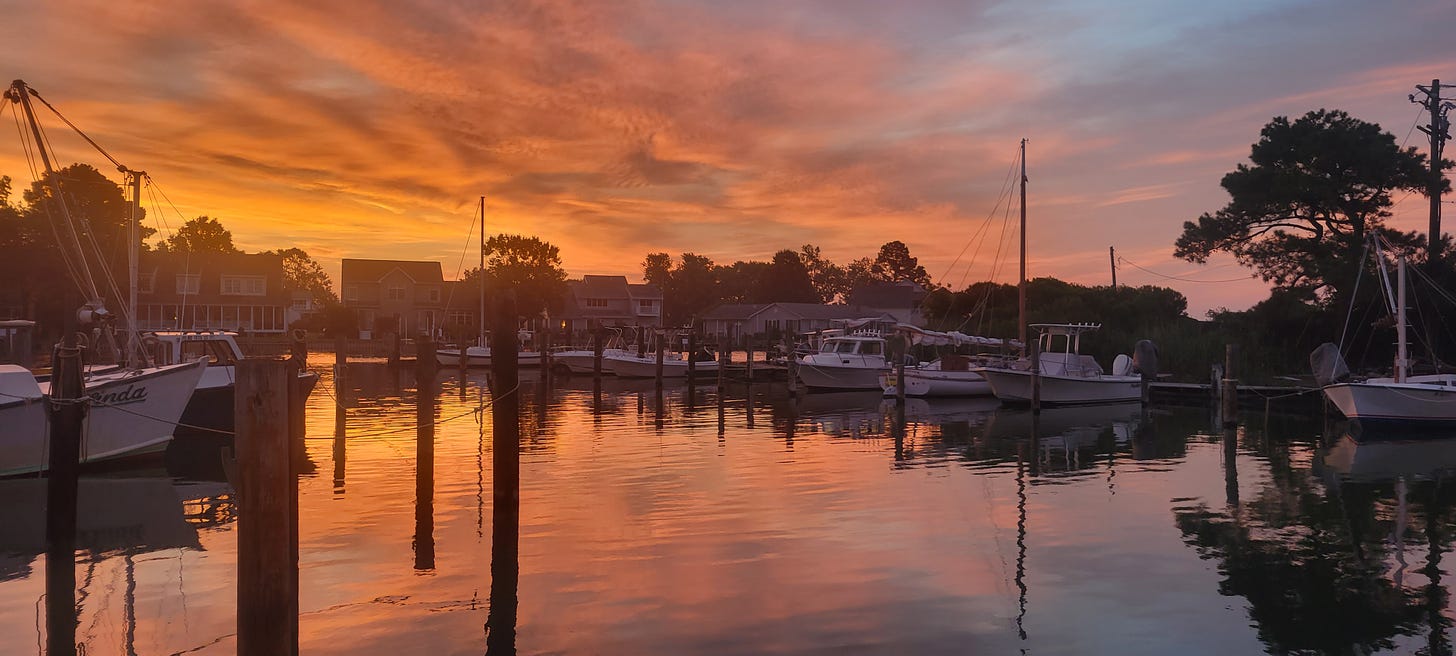
I hope you liked the second Watermen of Tilghman Island documentary. If you did, please hit that little heart icon and take a moment to comment on these ethical, hard-working people who are bringing crab and oysters to your table nationwide. Next time you partake, please consider where those coveted culinary delights came from. These men, my neighbors, are both the harvesters and the stewards of the Chesapeake Bay.





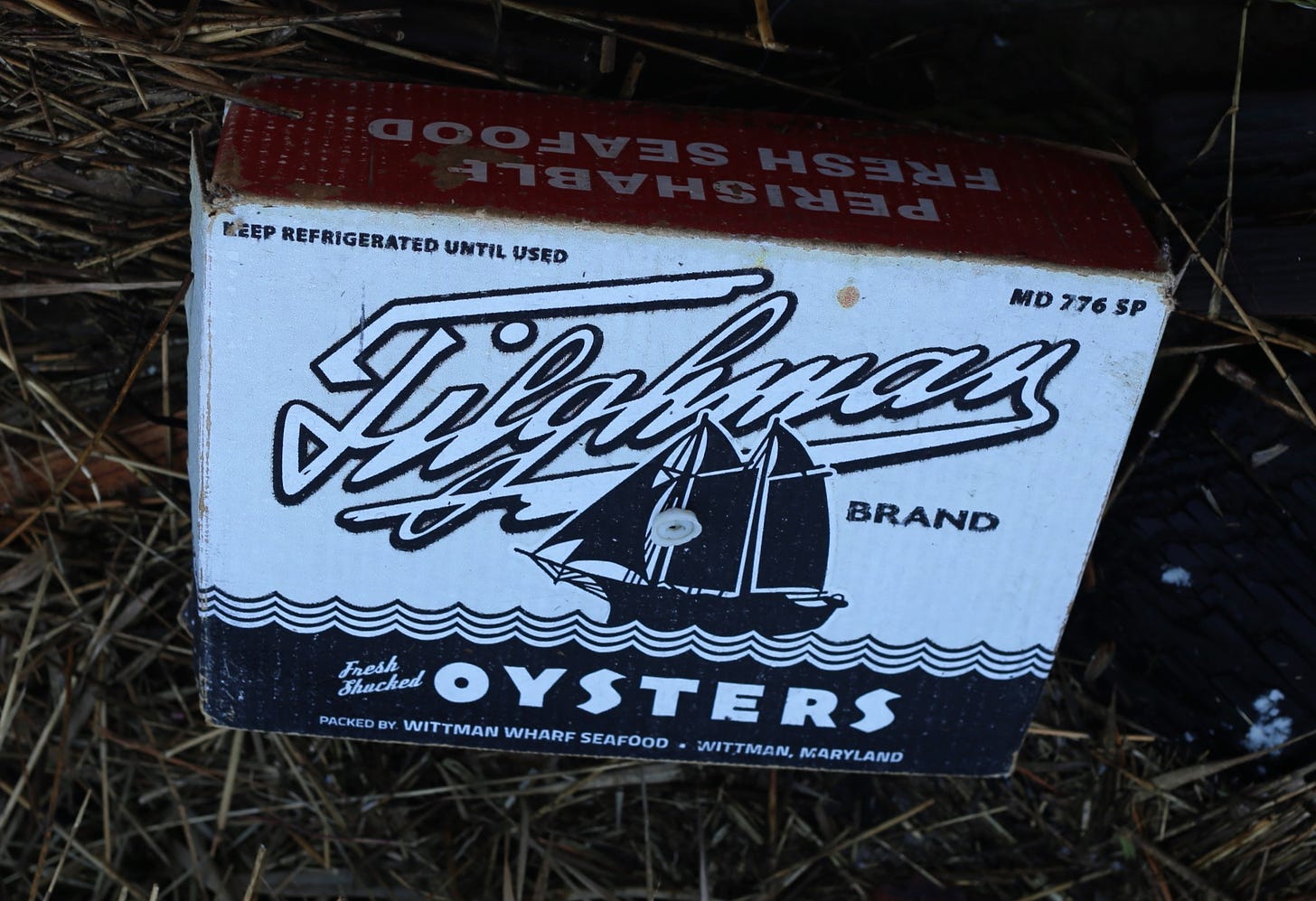
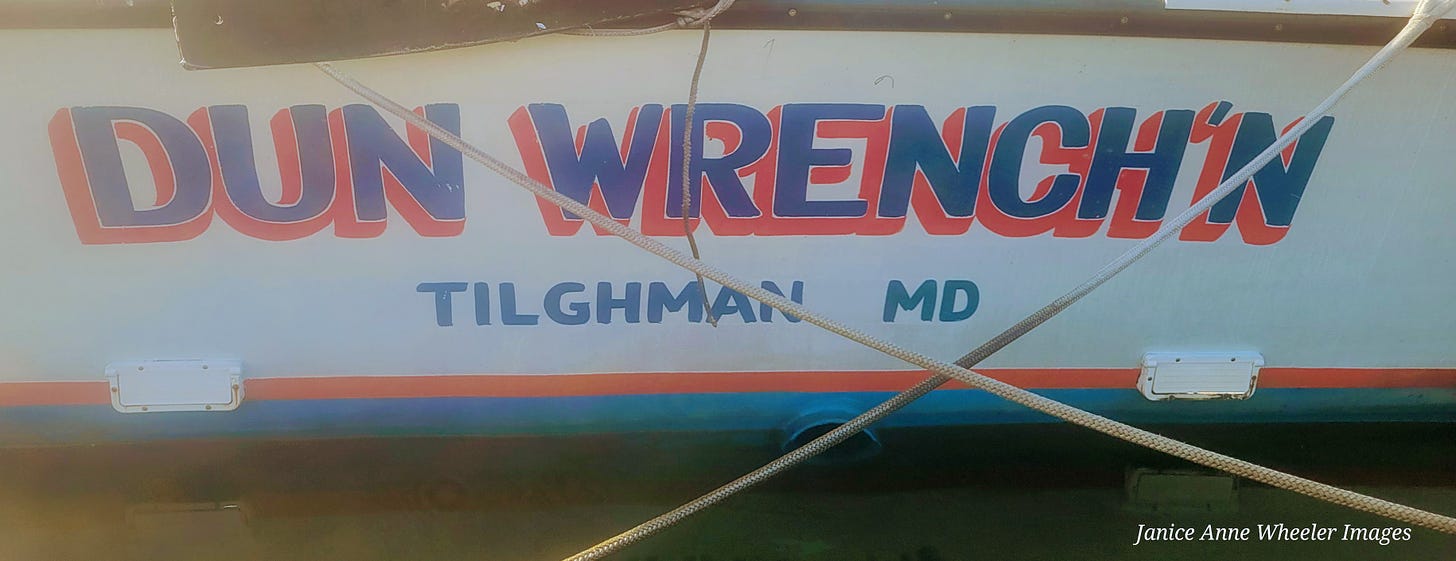
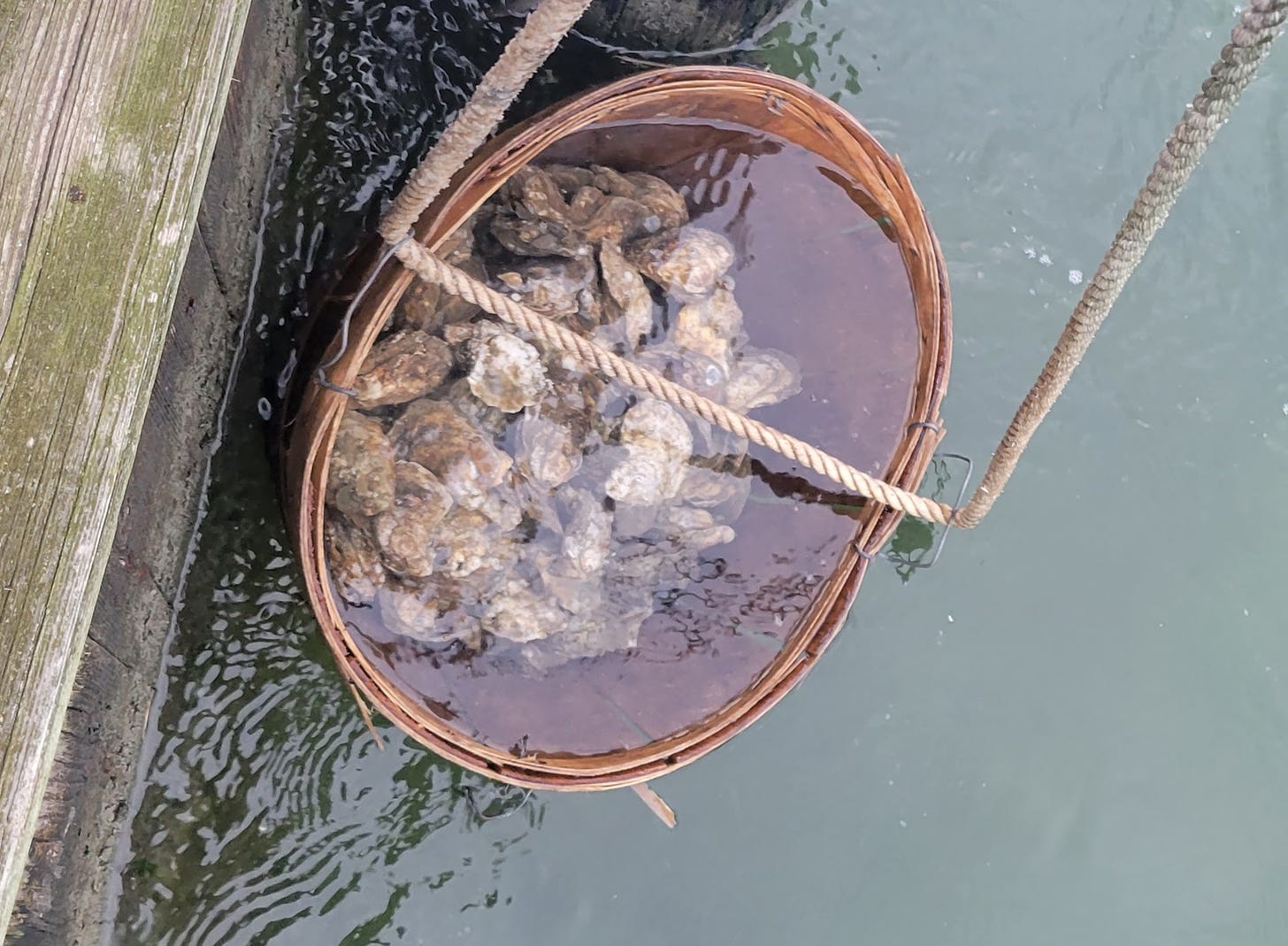
Enjoying these in depth stories of the many creatures you are blessed to encounter.
One of my favorite characters in your series. I have known, respected and loved this guy for most of my years. God knew what He was doing 40+ years ago. Jen is the best sister a brother could ever want.
Thank you for writing this story.